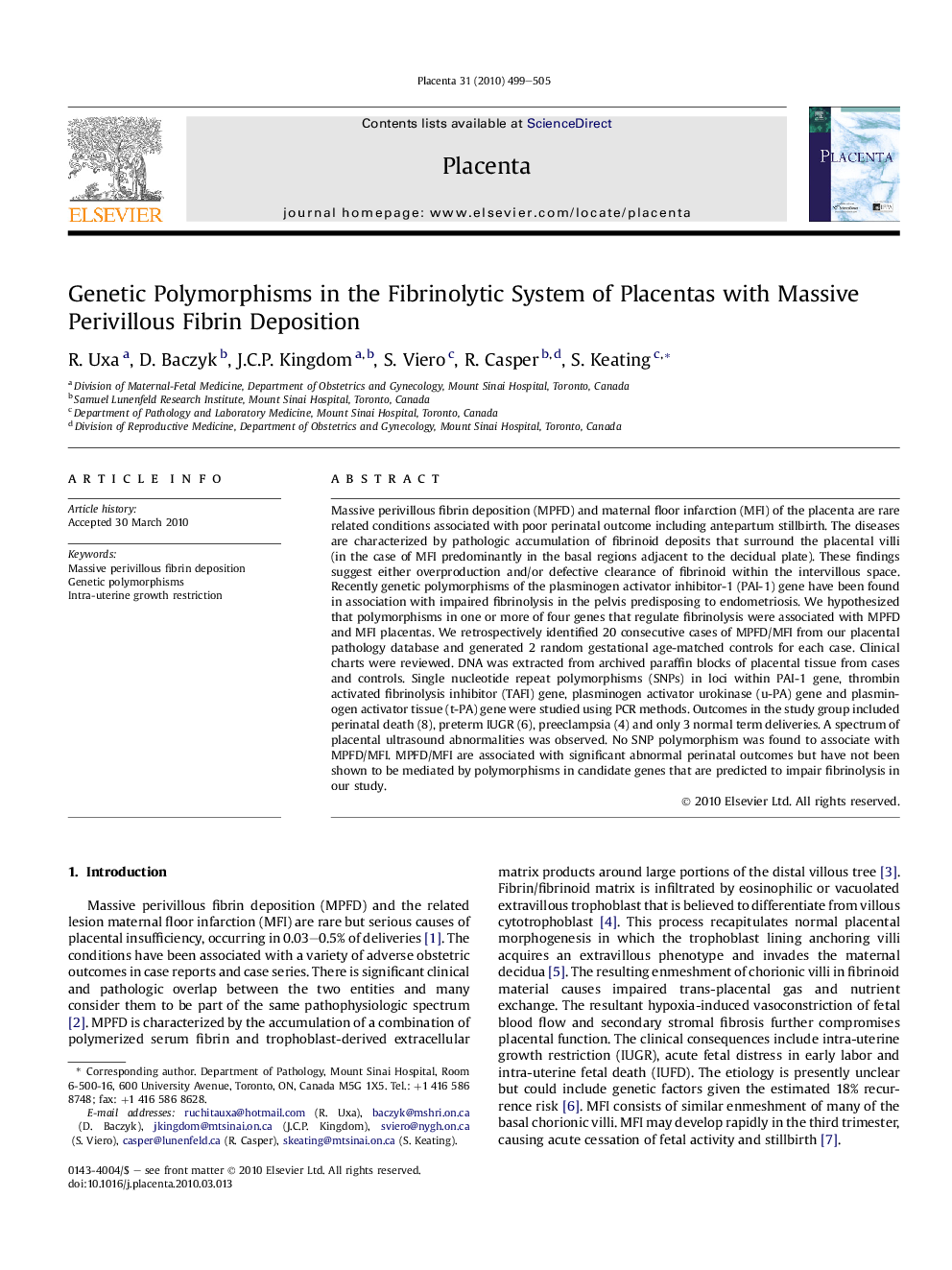| Article ID | Journal | Published Year | Pages | File Type |
|---|---|---|---|---|
| 5895863 | Placenta | 2010 | 7 Pages |
Abstract
Massive perivillous fibrin deposition (MPFD) and maternal floor infarction (MFI) of the placenta are rare related conditions associated with poor perinatal outcome including antepartum stillbirth. The diseases are characterized by pathologic accumulation of fibrinoid deposits that surround the placental villi (in the case of MFI predominantly in the basal regions adjacent to the decidual plate). These findings suggest either overproduction and/or defective clearance of fibrinoid within the intervillous space. Recently genetic polymorphisms of the plasminogen activator inhibitor-1 (PAI-1) gene have been found in association with impaired fibrinolysis in the pelvis predisposing to endometriosis. We hypothesized that polymorphisms in one or more of four genes that regulate fibrinolysis were associated with MPFD and MFI placentas. We retrospectively identified 20 consecutive cases of MPFD/MFI from our placental pathology database and generated 2 random gestational age-matched controls for each case. Clinical charts were reviewed. DNA was extracted from archived paraffin blocks of placental tissue from cases and controls. Single nucleotide repeat polymorphisms (SNPs) in loci within PAI-1 gene, thrombin activated fibrinolysis inhibitor (TAFI) gene, plasminogen activator urokinase (u-PA) gene and plasminogen activator tissue (t-PA) gene were studied using PCR methods. Outcomes in the study group included perinatal death (8), preterm IUGR (6), preeclampsia (4) and only 3 normal term deliveries. A spectrum of placental ultrasound abnormalities was observed. No SNP polymorphism was found to associate with MPFD/MFI. MPFD/MFI are associated with significant abnormal perinatal outcomes but have not been shown to be mediated by polymorphisms in candidate genes that are predicted to impair fibrinolysis in our study.
Related Topics
Life Sciences
Biochemistry, Genetics and Molecular Biology
Developmental Biology
Authors
R. Uxa, D. Baczyk, J.C.P. Kingdom, S. Viero, R. Casper, S. Keating,
